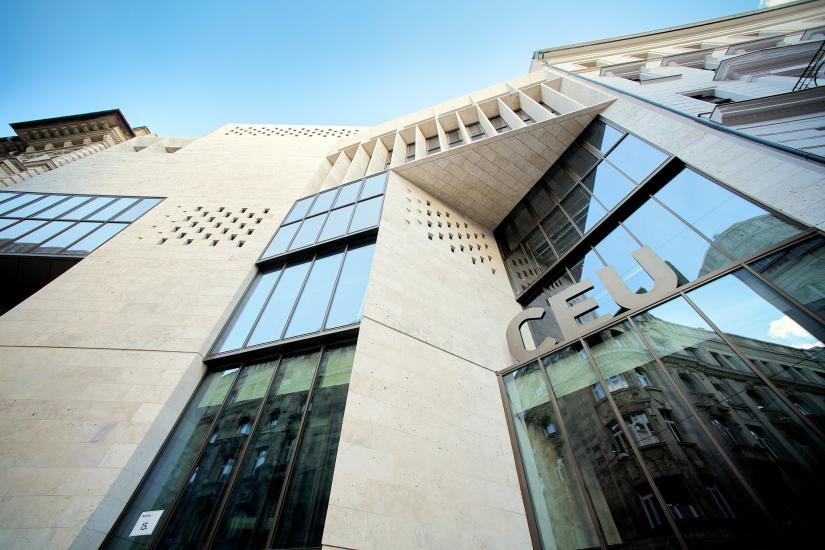
Academic freedom—the institutional autonomy of scientific, research and teaching institutions, and the freedom of individual scholars and researchers to pursue controversial research and publish controversial opinions—is a cornerstone of any free society. Today this freedom is under attack from the state in many countries—Russia, Turkey, Venezuela, Hungary, China—but it is also under question from within academe. Bitter disputes have erupted on American campuses, for example, about the limits of free speech and about whether liberal academic freedoms have degenerated into a form of coercive political correctness.
Beyond the academy itself, among the general public, academic freedom is contested ground. As Robert Post of Yale Law School has put it, academic freedom is “the price the public must pay in return for the social good of advancing knowledge.” Populist currents of political opinion are questioning the price a society pays for the freedom of its ‘experts’ and professors.
CEU’s day-long conference on academic freedom seeks to clarify our understanding of what academic freedom is, why it is under attack, from without and from within, and what needs to be done to reform and revive an ideal which is central to democratic freedom itself.
The conference will be livestreamed at https://videosquare.ceu.edu/en/live
Individual registration is required for all attendees.
Please register by June 18 using the online form.
CONFERENCE PROGRAM
8:30 – 9:30 / REGISTRATION /
9:30 – 10:30 / WELCOME / Michael Ignatieff, President and Rector, Central European University
KEYNOTE ADDRESS / Joan Scott, Professor Emerita, School of Social Science, Institute for Advanced Study, Princeton, New Jersey - Academic Freedom: the University and the State
10:30 – 10:45 / Coffee break
10:45 – 12:15 / Panel 1: Academic Freedom in Hungary
Hungary has an outstanding tradition of achievements in higher education and research. Hungarian universities, academics and students continue to be faithful to this tradition today. In recent years, however, the political climate around the universities and the regulatory framework have become challenging. A study by the European University Association published in 2017 reviews university autonomy in Europe and ranks Hungary at the very end of the standings of most restrictive higher education systems in Europe. Unexpectedly, Hungary is now considered a hotspot on the global map of challenges to academic freedom and university autonomy. In this panel, reputed Hungarian academics will discuss how to make sense of this situation, what is really happening and what could be done.
MODERATOR / Attila Chikan, Professor, Corvinus University, Budapest
PANELISTS / Valeria Csepe, President, Hungarian Accreditation Committee / Istvan Kenesei, Professor Emeritus, University of Szeged / Laszló Vass, President of the Private Institutions Section, Hungarian Rectors’ Conference; Rector of Budapest Metropolitan University / Katalin Tausz, Professor, Eötvös Loránd University, Budapest
12:15 – 13:15 / Lunch
13:15 – 14:45 / Panel 2: Academic Freedom: the Threat Within
Inside the university itself, especially in America, academic freedom is contested in bitter and recurrent controversies over free speech. Conservative speakers have been shouted down on liberal campuses; academic freedom has been denounced as ‘political correctness’ by populist politicians on the right, while some academics on the left have made the case that university platforms should not be accorded to people representing ‘racist’, ‘sexist’ or ‘climate-change denying’ views. Where do these controversies leave the ideal of the university as the free space in the center, where society freely debates its future and seeks to apply academic knowledge to the conflicts and controversies that divide any free society?
MODERATOR / Jonathan Cole, John Mitchell Mason Professor, Columbia University
PANELISTS / Allison Stanger, Professor, Middlebury College / Helga Nowotny, Professor Emerita, Science and Technology Studies, ETH Zurich and Former President of the European Research Council, ERC / Rogers Brubaker, Professor, University of California, Los Angeles / Leon Botstein, President of Bard College and Chairman, CEU Board of Trustees
14:45 – 15:00 / Coffee break
15:00 – 16:30 / Panel 3: Academic Freedom and the State
Higher education has expanded at an unprecedented rate around the globe, driven by the powerful policy narrative of the knowledge society. Governments of all types have invested heavily in higher education in order to address major societal concerns: employment, competitiveness, individual and group emancipation, security, and national identity. With this increased investment has come increased regulation and in some cases more intrusive control. Universities have pushed back, seeking increased space for university autonomy and respect for academic freedom. In some countries they have also become centers of political and cultural opposition to authoritarian trends in their own society and this faces them with a double dilemma: maintaining their political neutrality but also defending themselves against increasing state pressure. In this panel, we take the measure of these trends, with reference to specific cases—Russia, Turkey, Bangladesh, the Gulf States, UK/India.
MODERATOR / Liviu Matei, Provost and Pro-Rector, Central European University
PANELISTS / Ayse Kadioglu, Professor, Sabanci University / Nirmala Rao, Vice Chancellor, Asia University for Women / Catharine R. Stimpson, New York University, Abu Dhabi
16:30 – 17:00 / Break
17:00 – 18:00 / KEYNOTE ADDRESS / Mario Vargas Llosa, Nobel Laureate in Literature
18:00 / Reception